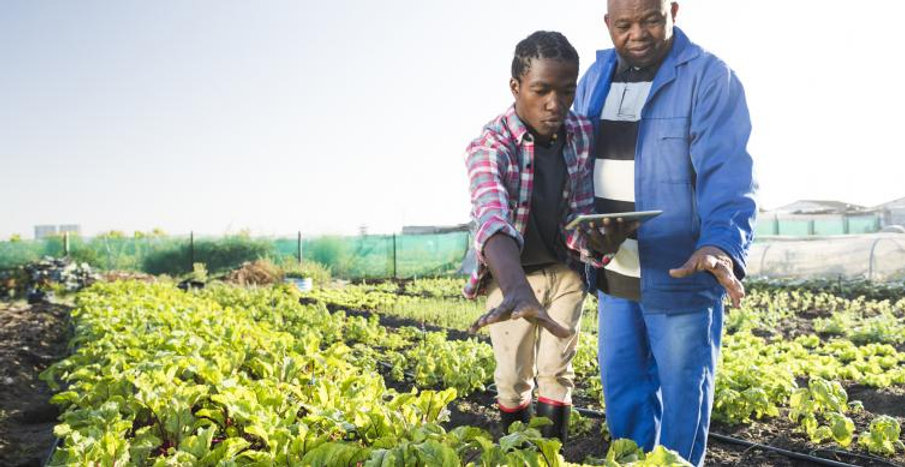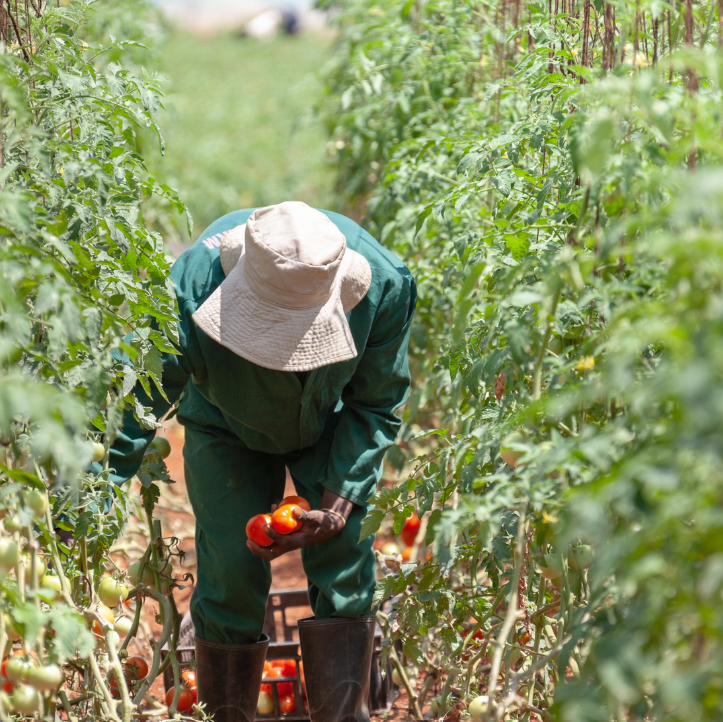How can Africa drive greater investment in agriculture? Dr Ibrahim Mayaki, CEO of AUDA-NEPAD examines the challenges and announces an initiative whose agenda will be driven by private sector leaders.

©Grow Africa
Agriculture presents the greatest opportunity for the continent.
Agriculture and agribusiness, sectors currently worth $300bn in Africa, will transform into a market worth $1tn by 2030. With 60% of the world’s available arable land and generally favourable conditions, the continent has a clear competitive advantage. The challenges and opportunities are well documented; Africa accounts for 75% of the world’s cocoa production – Côte d’Ivoire and Ghana alone account for 65% – but the continent receives only 2% of the $100bn annual revenues from global sales of chocolate and cocoa related products.
Experience and evidence from Africa show that achieving food security and realising the high potential returns offered by efficient agribusiness value chains requires visionary leadership and greater private sector participation in the agricultural space.
Africa has a clear comparative advantage in the field of agriculture. Yet it still has an annual food import bill in excess of $40bn. With the world’s youngest and fastest growing population, the agriculture sector, arguably, has the most scope for growth and development, and to create the millions of jobs needed for the youth.
Creating a dynamic private sector with the clear objective of driving greater investments in agriculture is therefore critical for policy makers to fulfil their promise to their people and to meet the SDGs and the Africa 2063 agenda. Job creation and becoming part of global value chains by creating competitive advantage in key agriculture industries has become an urgent necessity.
AUDA-NEPAD has been at the forefront of the agriculture revolution. Our clear mandate, as the African Union Development Agency, is to support the continent’s economic integration by focusing on issues of trade and markets, industrialisation and infrastructure development and human and institutional development. Among other things, this will lead to the development of effective and capable institutions in Africa.
Moreover, our works aims to promote entrepreneurship which will benefit employment creation, the development of sustainable food systems and the empowerment of rural communities. This underscores the importance of enhancing national and regional food systems and developing smart rural communities to positively impact infrastructure, nutrition, food safety and waste management.
We are now at a pivotal moment. With the launch and implementation of the landmark African Continental Free Trade Area the continent is in a unique position to capitalise on the newly integrated $3.4 trillion economic bloc. Moreover, major technology advancements are changing the way we live, work and develop. For all these reasons we believe it is paramount to catalyse greater investments into agriculture, support intra-Africa trade and use technology to transform food systems in Africa.
In order to address these issues, while mobilising public and private sector investments for large-scale regional and national projects along specific value chains, AUDA-NEPAD is establishing the Grow Africa Business Council (GABC) – an initiative whose agenda will be driven by private sector leaders in agriculture.
The GABC is a CEO-level private sector agriculture investment advisory panel for African Heads of State and high-level African policy makers, offering private sector leadership and strategic advice on a range of agribusiness-related development challenges.
We call for all private sector leaders and financiers from across the continent to join us in mobilising greater investments into agriculture and to join the Grow Africa Business Council.
This article was originally published by Grow Africa.

